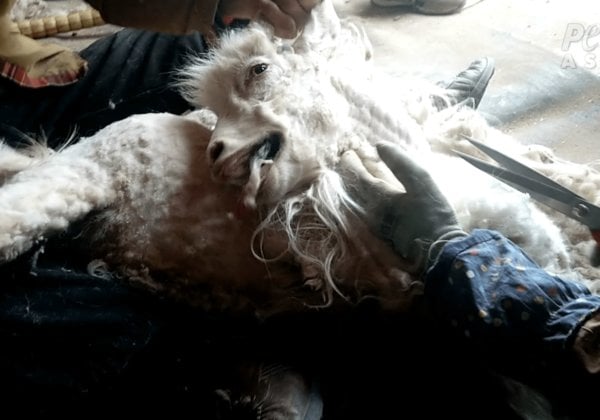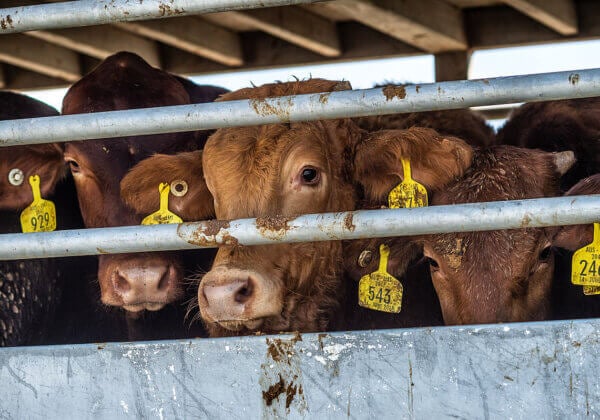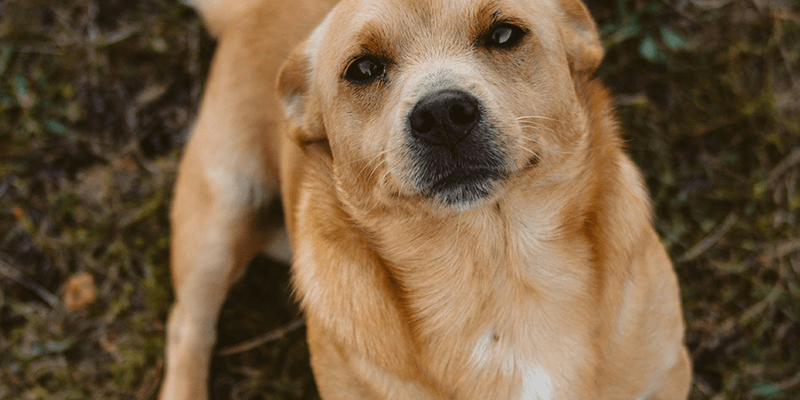Lanolin: a Cruelly Obtained Co-Product of Wool
If you’ve ever closely studied the labels of beauty or personal-care products – and we’re sure you have to make sure they’re cruelty-free and vegan! – you might have come across lanolin, also referred to as sheep grease, wool fat, wool yolk, wool wax, or wool grease.
Lanolin is a waxy substance produced by sheep to keep their fleece water-repellent . Taking it away from sheep to be used as a lubricant in various products is always cruel.
Lanolin is a lucrative co-product of wool, comprising between 5% and 25% of the weight of shorn fleece . It’s obtained by washing wool in a centrifuge separator after the sheep have been shorn – which means it’s obtained through subjecting these sensitive animals to the terrifying and often painful ordeal of shearing and its production is as environmentally damaging as that of wool.
In Australia, sheep are farmed primarily for their wool or, in the case of lambs under a year old, their flesh. Sheep are gentle, intelligent prey animals who can recognise up to 50 of their fellows , and in the wool industry, they’re routinely abused. Additionally, raising them compounds the climate catastrophe.
 Photo: Eyes of the Innocent
Photo: Eyes of the Innocent
The Wool and Lanolin Industries Hurt Sheep
In nature, sheep grow just enough wool for their own needs, but because Australian merino sheep are subjected to intensive breeding and genetic manipulation, they produce excessive amounts of it and have unusually wrinkled skin. These unnatural characteristics make them prone to flystrike, a horrific affliction which farmers attempt to avert via live-lamb cutting (also known as mulesing) – a painful practice in which farmers carve swathes of flesh from the backsides of young sheep, causing scarring.
Australia produces a whopping 345 million kilograms of wool every year , and to keep up with demand, shearers work quickly and are incentivised to rush. As a result, workers routinely throw sheep around and carelessly cut them with clippers during the shearing process.
One eyewitness said the following:
[T]he shearing shed must be one of the worst places in the world for cruelty to animals … I have seen shearers punch sheep with their shears or their fists until the sheep’s nose bled. I have seen sheep with half their faces shorn off .
The cuts are often crudely stitched up – without pain relief.
PETA entities have released seven exposés of facilities in Australia’s wool industry, and abuse was documented at each of the 40-plus farms and shearing sheds their investigators visited around the country. Workers were filmed punching, kicking, standing on, and beating sheep and cutting their skin with clippers. In one Victorian shearing shed, a worker cut the vaginal prolapse of a female sheep – who was likely in labour – before using her own wool to wipe her blood off the floor.
The Wool and Lanolin Industries Harm the Planet
It’s well established that animal agriculture is one of the biggest threats to the planet. Raising animals for food or their fleece has a significant detrimental impact on the environment.
Over half of Australia’s land is used for grazing animals , including around 75 million sheep. Clearing land to accommodate them has caused Australia to become the only developed nation on a global list of concerning deforestation hotspots. The loss of trees not only destroys valuable carbon trappers that can help to offset the production of greenhouse gasses but also robs native animals – like the endangered koala – of their homes.
Sheep, like other ruminants, produce large amounts of methane, a greenhouse gas up to 80 times more potent than carbon dioxide in warming the atmosphere during the two decades following its release.
The wool industry tries to greenwash its products, but the Made-By Environmental Benchmark for Fibers ranks wool as a “Class E” fibre – the worst category possible – based on its greenhouse gas emissions, toxicity to humans, eco-toxicity, and energy, water, and land use, and the Higg Index, collated by the Sustainable Apparel Coalition, ranks wool as the eighth-worst material for cradle-to-gate environmental impact .
Lanolin Is Linked to Live Export
You might never have considered that your moisturiser could be linked to the millions of sheep who are subjected to a gruelling journey by sea to be slaughtered abroad, but once a sheep’s wool production declines, the industry deems them useless and they’re sold for mutton or into Australia’s controversial live-export trade.
Let Sheep Live in Peace
By familiarising yourself with the aliases lanolin goes by, you can easily leave products that cause sheep to suffer on the shelf. Lanolin may be referred to by the following terms:
- Lanolin acids
- Lanolin alcohol
- Wool fat
- Wool wax
- Cholesterin
- Sheep grease
- Isopropyl lanolate
- Wool yolk
- Lanogene
- Laneth
- Lanosterols
- Wool grease
- Sterols
- Triterpene alcohols
There are many superior cruelty-free and vegan alternatives to lanolin. Shea butter, orange wax, vegetable-based glycerine and triglycerides, and other ingredients are super-moisturising and don’t support the violent wool industry.







